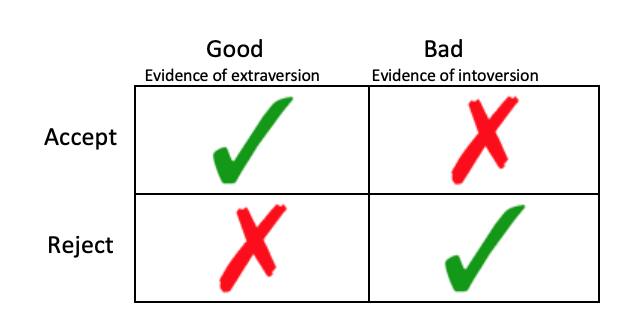Recruiting a leader in 2020 – Understated or Overstated?
April 18, 2020
What type of leader would you rather recruit?
There’s been a huge amount of published research on introverts versus extraverts as leaders, or indeed what we fondly call ‘ambiverts’ for those of us who do not feel we ‘fit’ neatly into one or other category!
Research points to extraversion being a helpful trait in leadership, one conclusion being that extraverted types are generally advantaged because many of the required leadership behaviours come more naturally to those who are outgoing and assertive, and who even have bigger egos.
It is not that simple though…
We can all think of leaders whom we admire and respect who are introverts and probably some extraverts whom we do not necessarily consider to be good leaders too. It is obviously not as simple as putting an individual ‘in a box’ and ascribing them as introvert or extravert when assessing leadership potential, but what can we glean from this axiom?

To be so black and white feels counter-intuitive and yet we are endlessly striving for robust measures in selection and certainty – that elusive perfect predictive validity of 1.
Arguably, there are some leadership tasks that everyone will find take them out of their comfort zone in one way or another. Even the most adept leaders will be mindful of adapting their behaviour with certain people or in different situations to a degree. The questions are: how far does this take the individual away from being their authentic self?; and at what point does the ‘required’ behaviour become so uncomfortable that there are negative ramifications?
What’s the reality?
One of the problems is that what we think we need in our successful leaders does not always tally with the behaviours that are demonstrated in reality. Does this mean that we need to be better at writing job descriptions/person specifications or just accept that defining what ‘good’ looks like is complex? Of course, we need to do all that we can to bring rigour to assessing our talent so the answer lies somewhere in-between the two extremes, but more towards structure being a good thing. The fact that competencies have stood the test of time is testament to the value of having clear criteria, albeit that competency based approaches have their critics. It is always good to be challenging the status quo, otherwise nothing improves!
What can we learn from the E/I construct to apply to the other Big 5 domains?
Rather than take the indications of extraversion versus extraversion in a person’s assessment as black and white regarding what it means for how they will behave, explore – and I mean really explore – the implications of this for their leadership style. So too in evaluating how resilient someone is, how they think and how they organise themselves. This is why the NEO is such a good personality questionnaire – it is so rich and offers up many useful avenues to talk through with individuals.
We need to remain open-minded and respond in an agile way to the findings thrown up during an assessment process. To simplify the process too far, akin to a tick box exercise, means we are missing valuable opportunities to identify unique skills and potential within our people.
Getting beneath the surface of what someone tells us in an interview or appraisal discussion requires skills in asking the right questions and listening. Only then can you be sure that you choose the right person for the job within the context of your organisation.
If you need help with upskilling your line managers in interviewing skills and values-based recruitment methodologies, make an appointment to talk with one of our experienced consultants.
Related Posts
Talk to Us Today.
Psychonnaissance is based in the South-West, but with easy access to all the major cities via Bristol airport and the national rail network, we regularly work with clients up and down the UK.



